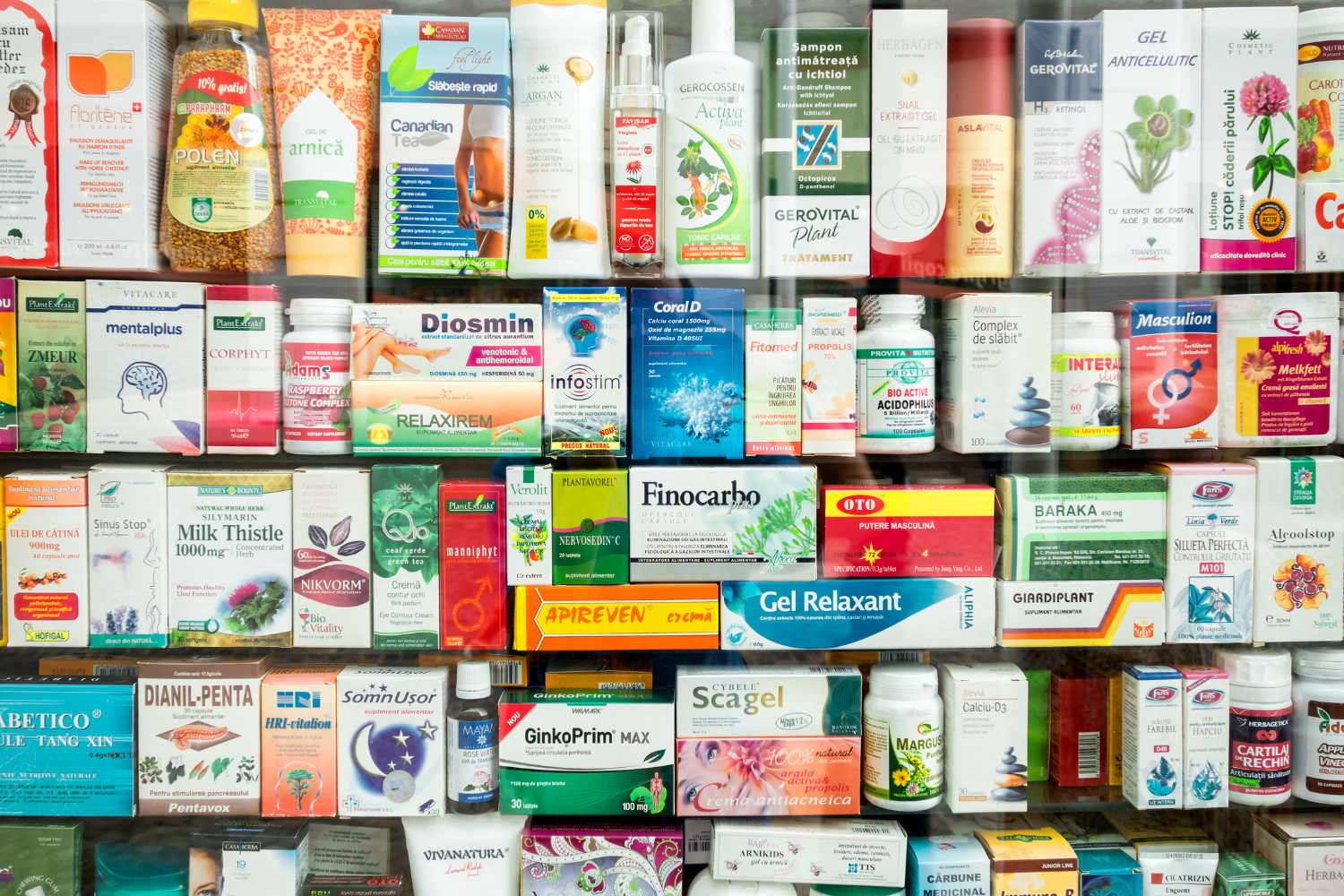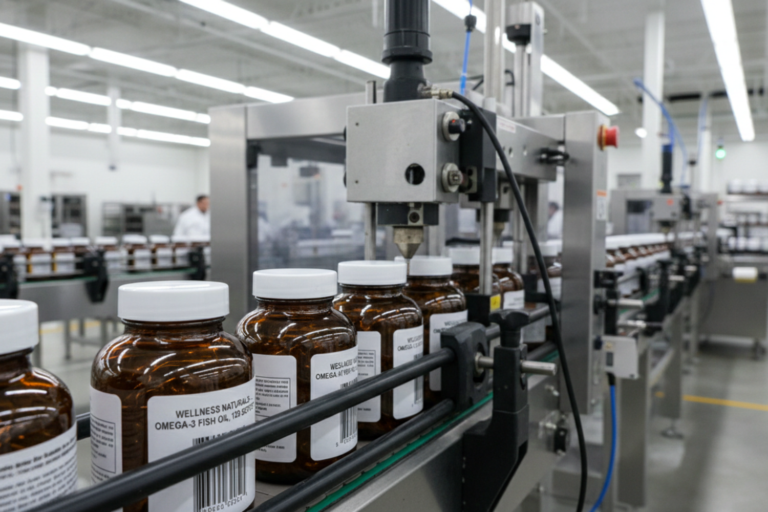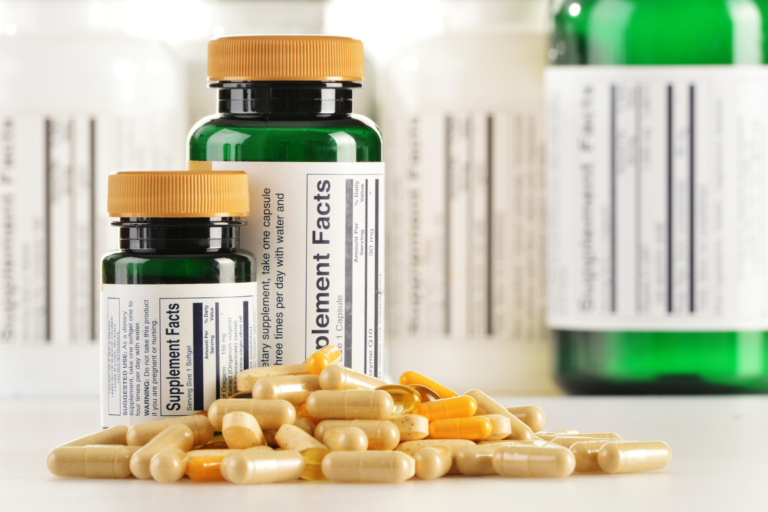Dietary supplement packaging plays a crucial role in protecting the quality and effectiveness of products while also serving as a key branding tool for supplement businesses. In a competitive market, choosing the right packaging materials is essential to preserve freshness, ensure proper labeling, and enhance the consumer experience.
Whether it’s bottles, flexible pouches, or jars, selecting suitable packaging for nutritional supplements like vitamins, capsules, and powders can help supplement brands engage customers and meet their unique needs. This guide explores the best bottle types, eco-friendly packaging options, and custom dietary supplement packaging strategies to help businesses succeed.
Why Packaging Matters for Your Supplement Business
The first impression of your supplement packaging can greatly influence how consumers perceive your brand. Customers who see high-quality, thoughtfully designed packaging are more likely to view your products as trustworthy and professional. This is especially important in the nutritional supplements market, where consumers seek reliability and effectiveness in the products they purchase. Whether using glass bottles, flexible pouches, or custom-designed boxes, the suitable packaging can make your products stand out on crowded shelves.
Quality packaging is not just about aesthetics but is also critical in building customer trust. Proper packaging materials help protect high-quality ingredients from moisture, light, and contamination, ensuring that vitamin supplements, powders, and capsules maintain their effectiveness. When customers know they are receiving products in safe and durable packaging, they are more likely to make repeat purchases, boosting overall sales and customer loyalty for your supplement business.

Regulatory Requirements for Dietary Supplement Packaging
Dietary supplement packaging must meet specific regulatory requirements to ensure safety and transparency. The FDA has guidelines that outline how supplement products should be packaged and labeled, including proper listing of ingredients, serving sizes, and potential allergens. Additionally, packaging must include clear instructions for use, storage, and any warnings. These regulations apply to all types of packaging, from plastic bottles to eco-friendly materials, and are essential for maintaining product integrity and consumer safety.
Meeting compliance is crucial for both legal protection and consumer trust. If a supplement packaging company fails to meet FDA guidelines, it risks fines, recalls, or even legal action, which can harm a brand’s reputation in a competitive market. Ensuring that your custom dietary supplement packaging follows the necessary standards helps protect your business and assures customers that the products they purchase meet high-quality and safety standards.
Popular Bottle Types for Dietary Supplements
Choosing the right bottle type for dietary supplement packaging is essential for protecting your products and meeting your brand’s needs. Different materials offer various benefits, so it’s important to understand which options best suit your supplement business.
Plastic Bottles
Plastic bottles remain popular for nutritional supplement packaging due to their versatility and cost-effectiveness. They are widely used in many industries, including supplement brands, because of their convenience and durability.
However, the environmental impact of plastics is increasingly a concern, with only about 9% of plastic being recycled in the U.S., making it important for brands to consider alternatives or incorporate recycled plastics where possible. Source: EPA
- Lightweight and cost-effective: Plastic bottles are easy to transport, reducing shipping costs and making them affordable for large quantities of supplement products.
- Durable for shipping and handling: Plastic bottles are less likely to break during transportation, making them ideal for protecting supplements from damage in transit.
- Suitable for capsules, powders, and gummies: Plastic bottles are versatile and can store a wide range of supplement products, including capsules, vitamin powders, and chewable gummies.
- Discuss recycled plastic and biodegradable alternatives: Many supplement packaging companies now offer eco-friendly packaging options like recycled plastic or biodegradable materials, which can help reduce a brand’s carbon footprint and appeal to environmentally conscious consumers.
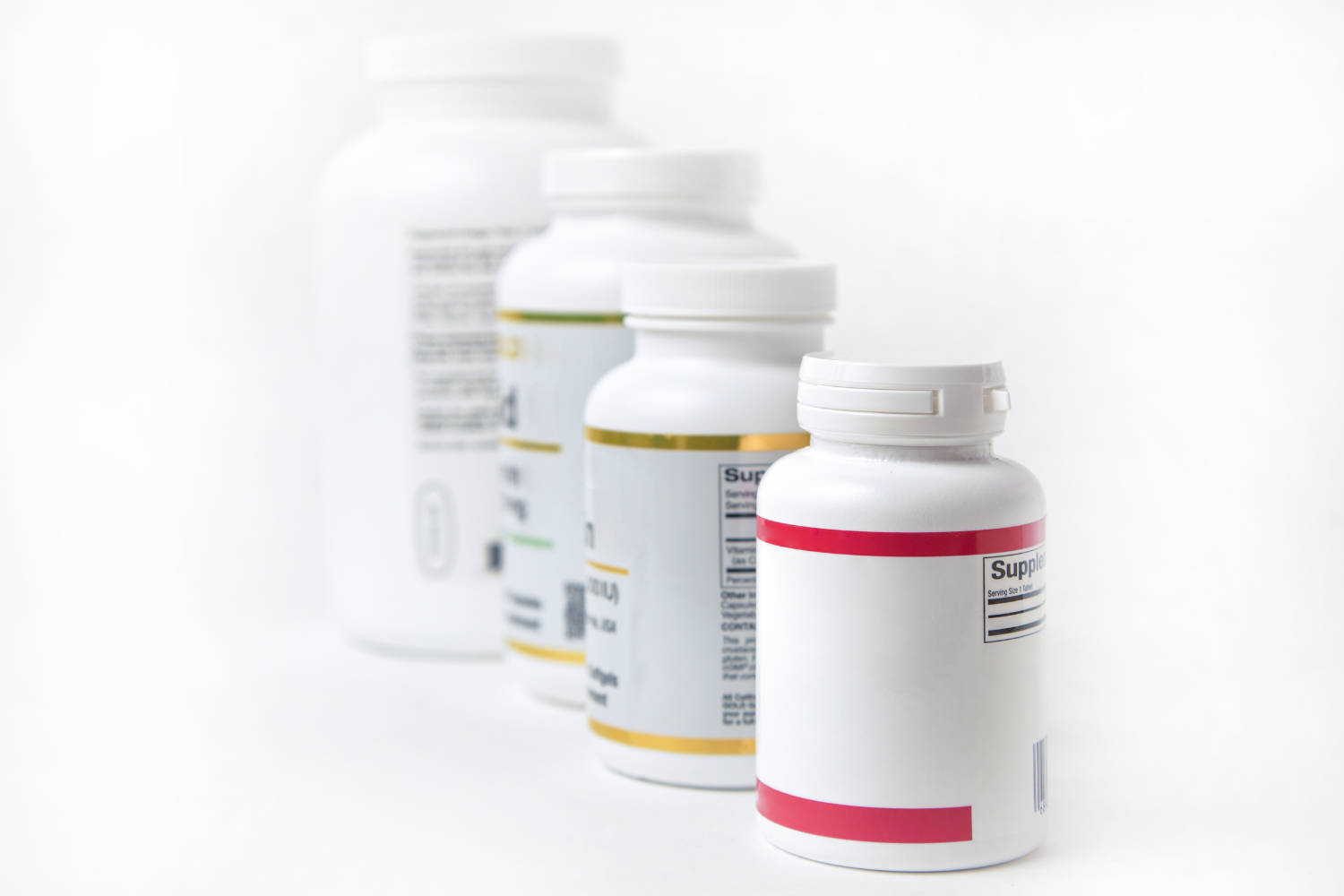
Glass Bottles
Glass bottles offer a premium packaging solution for supplement brands that want to emphasize quality. They are especially valued for their non-reactive nature, which helps preserve the integrity of high-quality ingredients.
- Premium feel and great for preserving product integrity: Glass bottles convey a sense of luxury and quality, making them an excellent choice for high-end nutritional supplement brands.
- Non-reactive with supplements, reducing the risk of contamination: Unlike some plastics, glass does not interact with the ingredients, ensuring the supplements remain safe and effective.
- Ideal for liquids, herbal extracts, and high-end supplements: Glass bottles are often used for packaging liquid supplements, herbal extracts, and other products that require careful preservation.
- Fragile and higher shipping costs than plastic: Although they offer excellent product protection, glass bottles can break easily and are more expensive to ship, adding to overall packaging costs.
HDPE Bottles (High-Density Polyethylene)
HDPE bottles are strong and can protect supplements from moisture, helping to maintain their freshness and effectiveness over time. Their lightweight nature also reduces shipping costs, which is an advantage for supplement brands managing large orders. These bottles are commonly used for tablets and capsules, making them a go-to choice for packaging products like vitamin supplements and other nutritional supplements that need protection from moisture.
HDPE is widely used in both the pharmaceutical and supplement industries. Its durability makes it a reliable option for packaging various products, from dietary supplements to over-the-counter medications.
PET Bottles (Polyethylene Terephthalate)
PET bottles are transparent, allowing customers to see the product inside, which can enhance the buying experience. They are also durable and lightweight, making them ideal for storing powders and other supplements that benefit from a visible presentation. These features make PET a practical option for brands looking for supplement packaging that combines aesthetic appeal with functionality.
Due to their transparency, PET bottles are excellent for branding and visual marketing. They allow supplement brands to create customized labels that highlight the product inside, helping it stand out on the shelf and engage customers looking for quality.
PET bottles are especially suitable for products like gummies and powders, where a clear view of the product can make a difference in consumer decision-making.
Eco-Friendly and Sustainable Packaging Solutions
As more consumers become environmentally conscious, supplement brands turn to sustainable packaging materials like recycled plastic, biodegradable polymers, and glass. Recycled plastic helps reduce waste and lowers the carbon footprint of production. At the same time, biodegradable polymers break down more easily after disposal. Glass remains a popular choice due to its reusable nature and non-reactive properties, making it an eco-friendly option for high-end supplements.
These sustainable packaging options appeal to eco-conscious consumers who prioritize reducing their environmental impact. By offering products in eco-friendly packaging, supplement businesses can differentiate themselves in a competitive market and attract customers who value sustainability efforts. This can also enhance brand loyalty among those looking for green alternatives in their daily health routines.
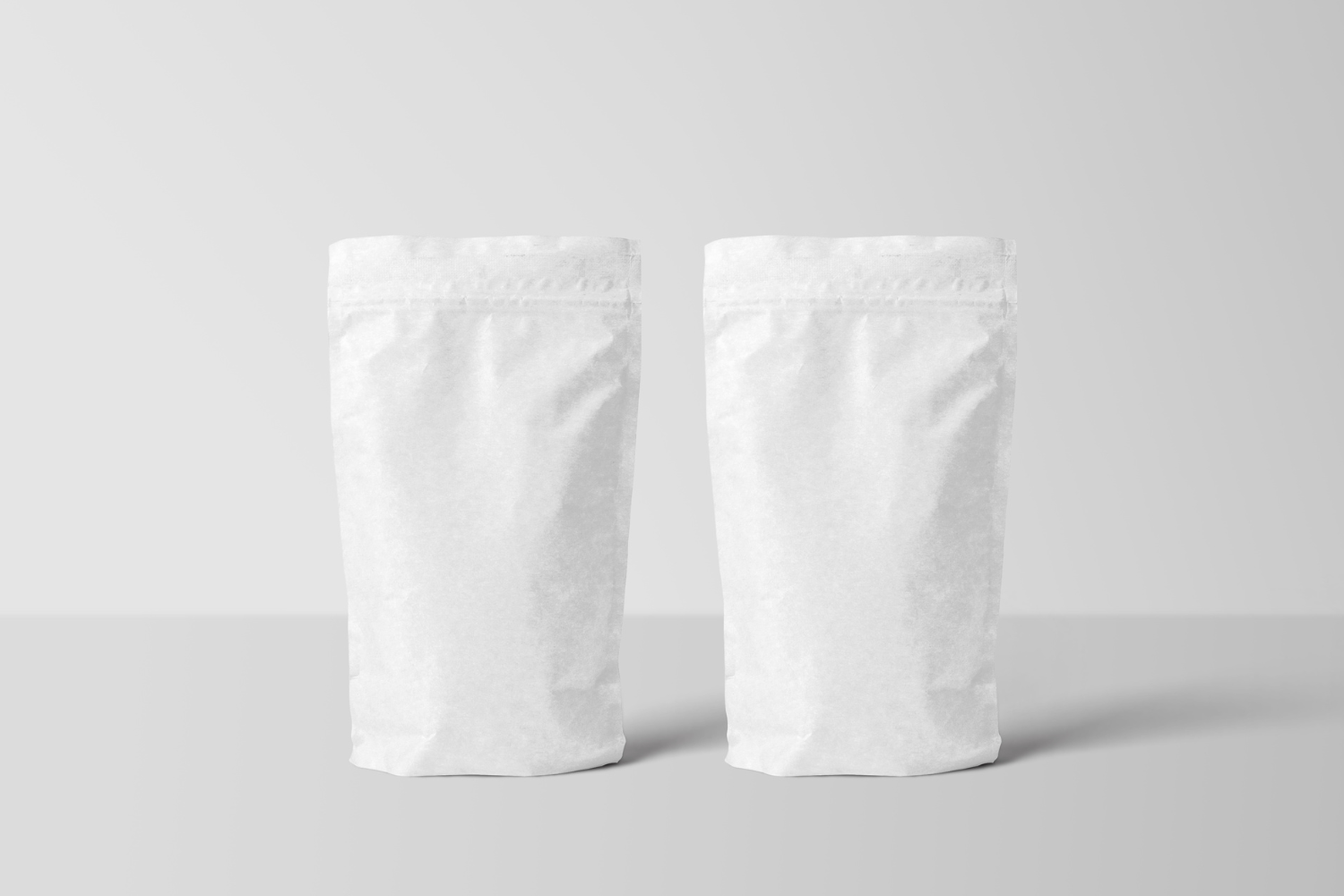
Balancing Cost and Environmental Responsibility
While eco-friendly packaging solutions like recycled plastic and glass can be more expensive than traditional plastic, they offer long-term benefits that can outweigh the initial costs. The cost of producing biodegradable or recycled packaging is often higher due to more complex manufacturing processes. Still, these materials can be a smart investment for brands aiming to reduce their environmental impact and appeal to a broader audience.
Investing in sustainable packaging can improve a brand’s reputation, positioning the business as a leader in environmental responsibility. Many consumers are willing to pay a premium for products that align with their values, and offering eco-friendly packaging can help supplement brands attract and retain these customers. It’s a strategic way to balance costs while contributing positively to the planet.
Key Features to Consider for Supplement Bottles
Choosing the right features for supplement bottles is crucial for protecting the product, extending shelf-life, and ensuring a positive customer experience. Key considerations include moisture and light protection, appropriate bottle size, and safety features.
Protection Against Moisture and Light
UV-resistant coatings are important for protecting supplements that are sensitive to light. Exposure to UV rays can degrade the active ingredients in supplements, reducing their potency over time. Using bottles with UV protection helps maintain the quality of vitamin supplements and other light-sensitive products, ensuring that customers receive an effective product throughout its shelf life.
Controlling moisture is critical for maintaining the freshness and effectiveness of supplements. Moisture-resistant packaging, like HDPE and PET bottles, helps to protect powders, capsules, and other dry supplements from clumping or losing potency. By keeping moisture out, these packaging materials help preserve the quality of supplements, ensuring they remain stable and effective for longer periods.
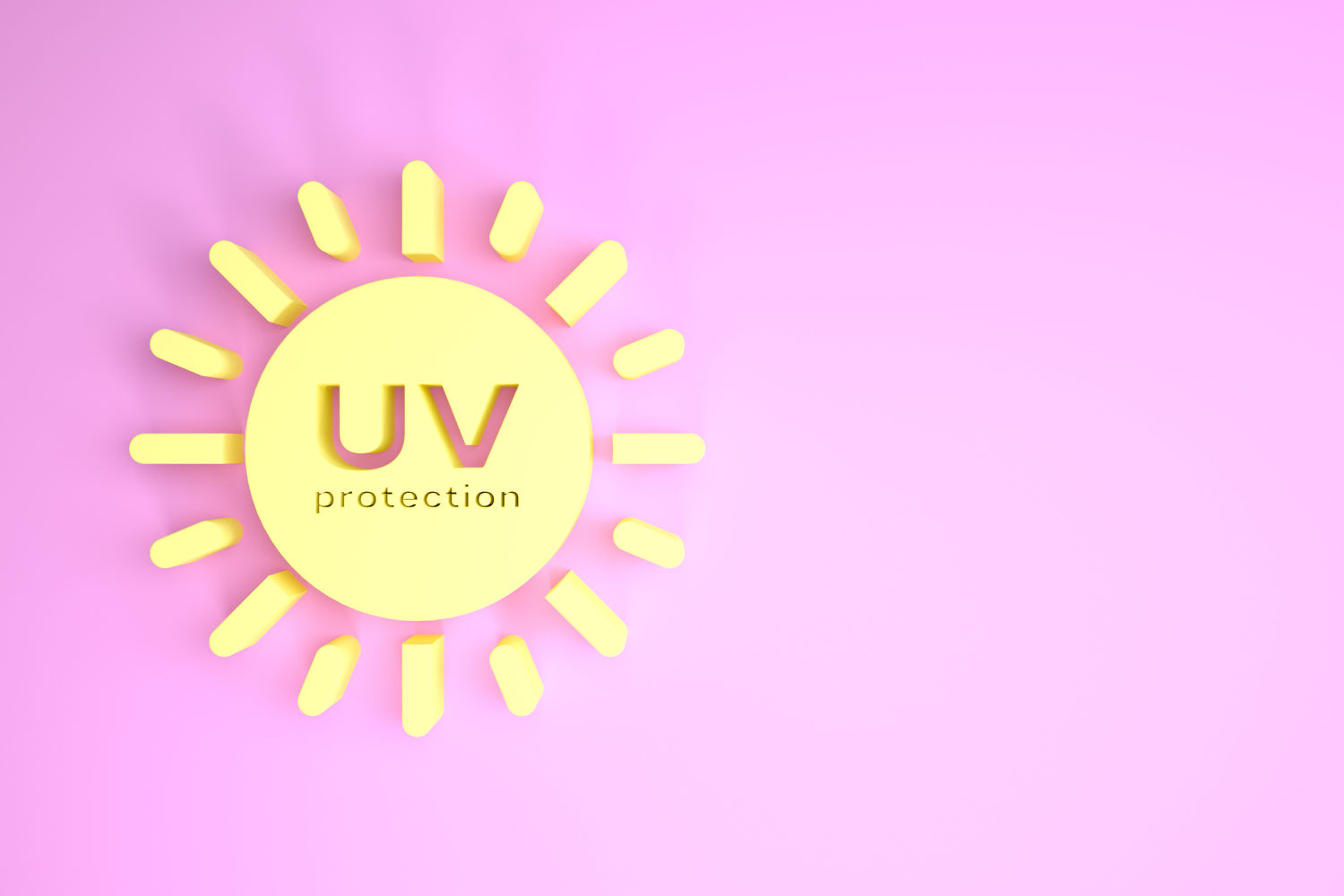
Choosing the Right Bottle Size
Selecting the right bottle size for your supplements can impact product appeal and customer satisfaction. Here are some considerations:
- Serving Size: The bottle size should match the recommended serving size, ensuring that customers receive an appropriate quantity of supplements for daily use.
- Product Type: For larger capsules or bulk powders, bigger bottles may be necessary to accommodate the product while allowing space for labeling and consumer information.
- Customer Preferences: Many consumers appreciate the convenience of smaller, portable bottles, especially for products like gummies and daily vitamins they may carry on the go.
Safety Features: Child-Resistant and Tamper-Evident Caps
Child-resistant caps are essential for products that may pose a risk if ingested by young children, such as potent dietary supplements or specific vitamins. These closures are designed to prevent accidental access, providing peace of mind for parents and caregivers. Using child-resistant packaging, supplement brands can better protect their customers and comply with safety regulations.
How tamper-evident seals add an extra layer of consumer trust
Tamper-evident seals provide visible proof that a product has not been opened or altered before purchase and are a regulatory requirement for dietary supplements according to FDA guidelines to ensure consumer safety. This feature is especially important in the supplement industry, where consumers rely on packaging integrity to ensure product safety. Tamper-evident packaging can help build customer trust, showing that your brand prioritizes their health and safety by ensuring the supplement reaches them in its intended form. Source: FDA Dietary Supplement Labeling Guide
Customizing Your Supplement Packaging for Branding
Customizing your dietary supplement packaging is pivotal to building a recognizable brand and attracting customers. The correct design elements, including labels, colors, and materials, can help your products stand out in a crowded market.
Designing Eye-Catching Labels
Clear, readable labels are essential for providing important product information and ensuring compliance with FDA guidelines. This includes accurate ingredient lists, serving sizes, and necessary warnings to ensure transparency and safety.
Creating a strong brand identity through packaging involves thoughtful design choices. Here’s how you can craft an impactful identity using different packaging elements:
- Colors: Choose colors that reflect your brand’s personality, like earthy tones for natural supplements or bold colors for a modern look.
- Fonts: Use fonts that align with your brand’s image—clean and simple fonts for a professional feel or more unique styles for a fun, casual appeal.
- Materials: Consider packaging materials that match your brand values, such as recycled plastic for an eco-friendly image or glass for a premium feel.
- Logos and Graphics: Incorporate a distinctive logo and graphics that resonate with your target audience and make your products instantly recognizable.
- Label Layout: Clear label information to enhance readability, focusing on critical points like benefits, ingredients, and certifications.
Color and Material Customization
Choosing the right colors and materials can significantly impact how consumers perceive your supplements. For example, green and brown tones may signal a natural, organic product, while metallics like gold or silver can give a premium feel. Selecting materials such as eco-friendly plastic or glass can also communicate a commitment to sustainability, aligning with the values of many consumers today.
Successful nutritional supplement brands often stand out through creative packaging designs that reflect their identity. For instance, some brands use matte-finished black bottles to convey a sense of luxury, while others use clear PET bottles to highlight the vibrant colors of their gummies or powders. By aligning packaging design with brand values, businesses can attract their ideal customers and strengthen brand loyalty.
Packaging Costs and Budget Considerations
The cost of supplement packaging varies based on the type of bottle you choose, such as plastic, glass, HDPE, or PET. Plastic bottles are often the most cost-effective, while glass tends to be more expensive due to higher production and shipping costs. HDPE and PET bottles fall somewhere in between, offering a balance of affordability and durability.
To balance cost and quality when starting out, consider these tips:
- Start Small: Begin with smaller quantities to test the market before scaling up your packaging orders.
- Use Standard Sizes: Standard bottle sizes can be more affordable than custom shapes and are easier to source from most suppliers.
- Focus on Key Design Elements: Prioritize essential branding elements like your logo and brand colors rather than costly packaging add-ons.
- Negotiate with Suppliers: Building a good relationship with your packaging supplier can lead to better pricing and potential discounts.
- Choose Versatile Materials: Opt for materials like PET that offer clarity and durability, making them suitable for a wide range of products.
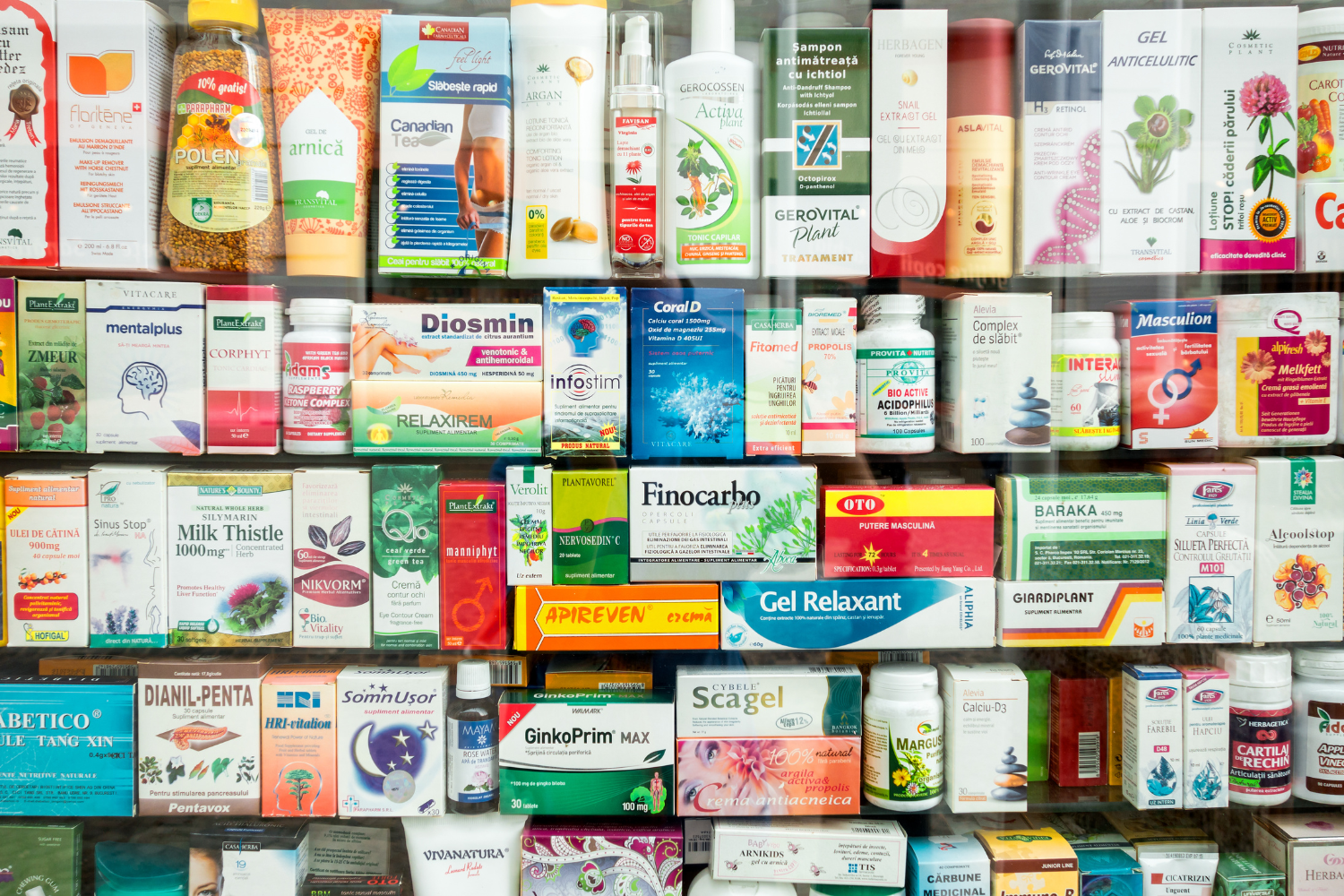
Premium vs. Budget Packaging Options
Premium packaging options, like glass bottles or custom-designed labels, are ideal for positioning your brand as a high-end choice. This investment can be significant for products aimed at consumers willing to pay more for quality and presentation.
On the other hand, budget-friendly options like plastic bottles are suitable for brands just entering the market or focusing on mass-market appeal. While premium packaging can boost brand perception, starting with cost-effective solutions allows businesses to manage expenses until they gain a foothold in the market. Over time, investing in higher-quality packaging can help increase sales by appealing to a wider range of customers.
Choosing the Right Packaging Supplier
Finding a reliable packaging supplier is crucial to ensure your dietary supplements are packaged with consistency and care. Consider these factors when choosing a supplier:
- Pricing: Look for a supplier that offers competitive rates without compromising quality.
- Certification: Ensure the supplier has relevant certifications that meet industry standards, such as GMP (Good Manufacturing Practices).
- Production Capacity: Choose a supplier to scale production to match your business growth and demand.
- Customer Support: A responsive supplier can help resolve any issues quickly, ensuring a smooth packaging process.
Ensuring your packaging supplier follows GMP and other industry standards is vital for product safety and quality control. This compliance helps prevent contamination, ensures accurate labeling, and builds consumer trust by guaranteeing that your supplements meet high safety standards.
Domestic vs. International Suppliers
When choosing between domestic and international suppliers for your supplement packaging, each option has pros and cons. Domestic suppliers often offer faster shipping times, making them ideal if you need a quick turnaround. They may also be more familiar with local regulations, which can help streamline the compliance process.
On the other hand, international suppliers can offer lower prices, which may benefit brands looking to reduce costs. However, factors like longer shipping times, potential import fees, and challenges with quality control can complicate the process. It’s essential to weigh these aspects and choose the supplier that best aligns with your business needs.
Beyond Bottles: Alternative Packaging Solutions
While bottles are a common choice for dietary supplement packaging, other options may better suit specific products and consumer needs. Sachets, pouches, and stick packs offer versatile alternatives that can be used for various supplement types.
Sachets and Pouches
Sachets and pouches are ideal for single-serve supplements and powders. They provide a convenient way for customers to carry individual servings, making them a popular choice for travel-friendly options. Pouches also help maintain product freshness, protecting ingredients from moisture and air exposure.
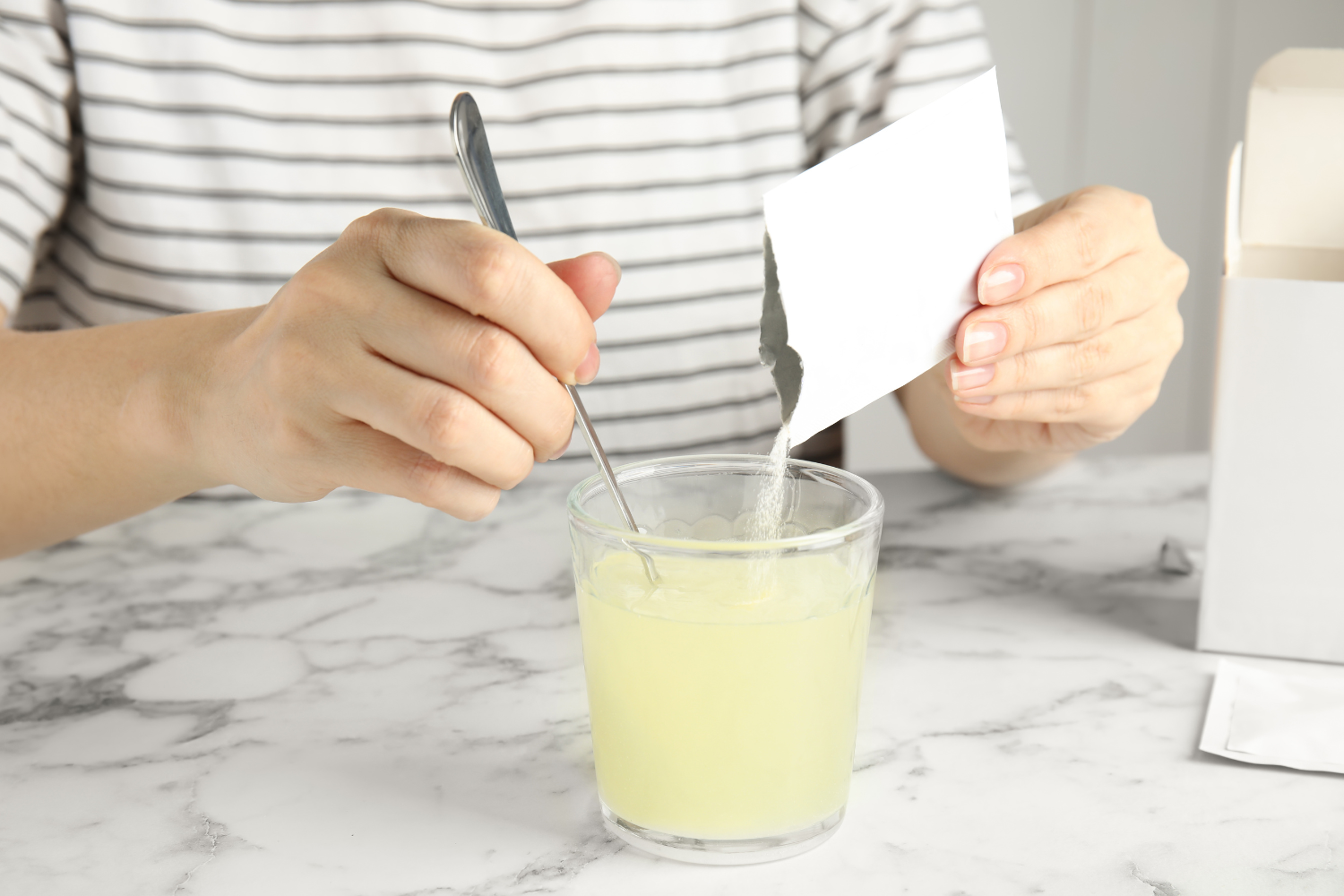
Stick Packs
Stick packs are a growing trend in portable supplement packaging. They are prevalent for powdered vitamins and energy blends, offering a mess-free, easy-to-use solution. Their slim design makes them perfect for on-the-go consumers, fitting easily into bags or pockets.
When to Use Alternative Packaging
Sachets, pouches, or blister packs may be better suited than bottles for specific product types. Stick packs work well for pre-measured doses of powdered supplements, while blister packs can be ideal for products that need to be kept in separate doses. These options also allow for more precise portion control.
Offering diverse packaging solutions helps brands meet different consumer preferences. Some customers may prefer a large bottle of capsules for home use, while others might seek out individual sachets for convenience. Supplementary brands can cater to a broader audience and adapt to changing market demands by providing multiple packaging options.
Find the Perfect Bottle Type for Your Supplement Packaging
Selecting the right bottle type—plastic, glass, HDPE, or PET—is crucial for protecting your supplements and appealing to your target market. Plastic bottles are cost-effective and durable, suitable for capsules and powders, while glass bottles provide a premium feel and are ideal for liquid supplements.
HDPE bottles offer excellent moisture resistance, and PET bottles are perfect for showcasing vibrant gummies and powders. When choosing dietary supplement packaging, consider your brand identity, budget, and sustainability goals. Start selecting the best packaging for your supplement brand today to stand out in a competitive market.
Frequently Asked Questions
What is the best bottle type for liquid supplements?
Glass bottles are the best liquid supplements because they preserve product integrity and prevent chemical reactions.
How do I ensure my dietary supplement packaging is compliant with FDA regulations?
Follow FDA guidelines by including accurate ingredient lists, serving sizes, and necessary warnings on your supplement packaging.
Is glass or plastic better for dietary supplement packaging?
Glass is ideal for premium and liquid supplements, while plastic offers a more cost-effective solution for capsules and powders.
What are eco-friendly options for supplement packaging?
Recycled plastic, biodegradable polymers, and glass are popular eco-friendly packaging options for supplement brands.
How can I customize my supplement packaging to boost my brand?
Customize your packaging with eye-catching labels, unique colors, and sustainable materials to create a strong brand identity.
References
- National Institutes of Health. (2023). Dietary Supplements: What You Need to Know. https://ods.od.nih.gov/factsheets/WYNTK-Consumer/
- U.S. Food and Drug Administration. (n.d.). CPG Sec. 450.500 – Tamper-resistant packaging requirements for certain over-the-counter human drug products. FDA. https://www.fda.gov/regulatory-information/search-fda-guidance-documents/cpg-sec-450500-tamper-resistant-packaging-requirements-certain-over-counter-human-drug-products
- U.S. Food and Drug Administration. (2024). Current Good Manufacturing Practices (CGMPs) for Food and Dietary Supplements. https://www.fda.gov/food/guidance-regulation-food-and-dietary-supplements/current-good-manufacturing-practices-cgmps-food-and-dietary-supplements
- U.S. Food and Drug Administration. (2024). Label Claims for Conventional Foods and Dietary Supplements. https://www.fda.gov/food/nutrition-food-labeling-and-critical-foods/label-claims-conventional-foods-and-dietary-supplements
- U.S. Food and Drug Administration. (2005). Dietary Supplement Labeling Guide. https://www.fda.gov/food/dietary-supplements-guidance-documents-regulatory-information/dietary-supplement-labeling-guide
- U.S. Environmental Protection Agency. (n.d.). About plastic products and plastic pollution. https://www.epa.gov/plastics/about-plastic-products-and-plastic-pollution
- U.S. Environmental Protection Agency. (2024). Plastics: Material-Specific Data. https://www.epa.gov/facts-and-figures-about-materials-waste-and-recycling/plastics-material-specific-data
